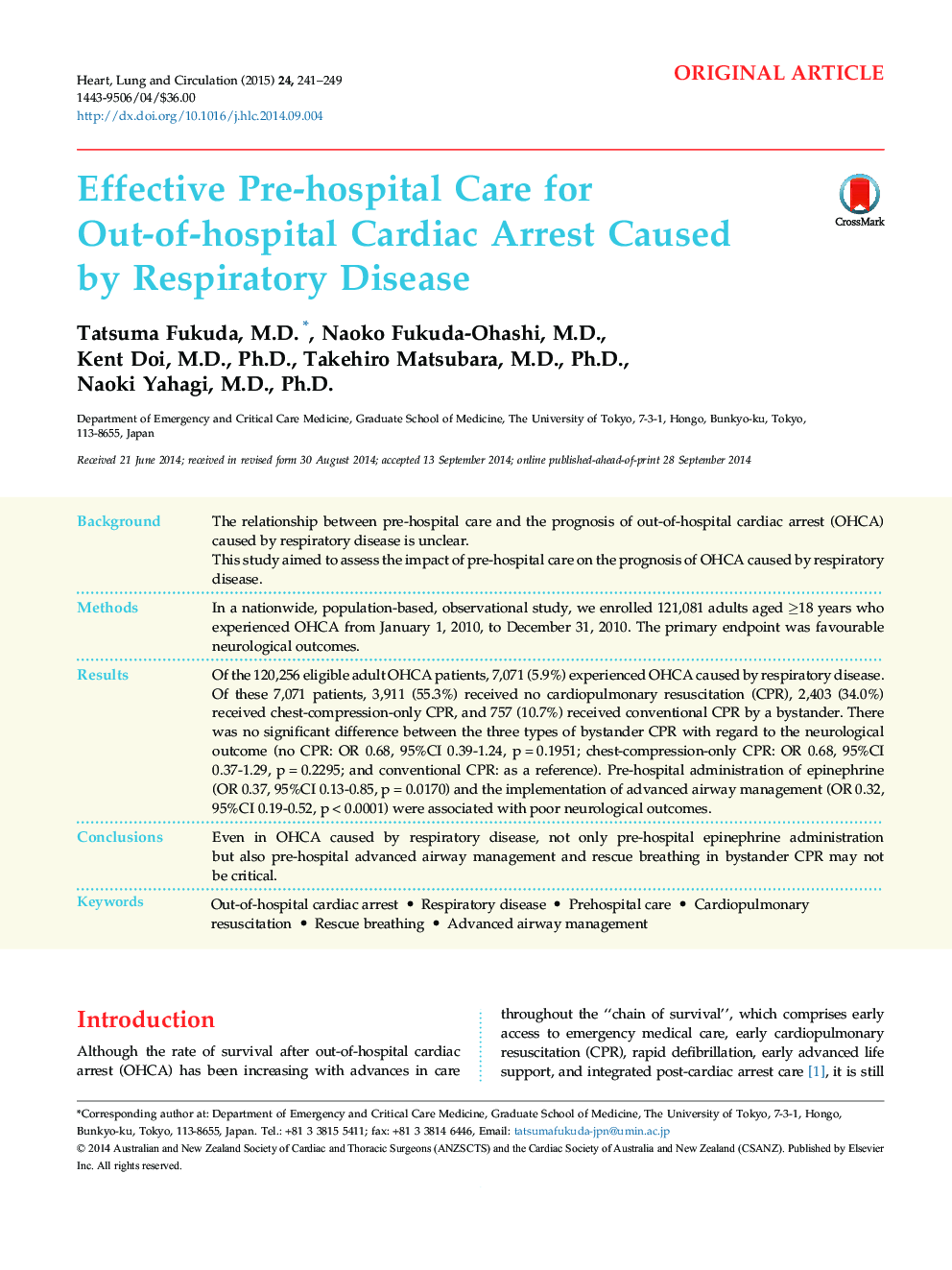| Article ID | Journal | Published Year | Pages | File Type |
|---|---|---|---|---|
| 2917061 | Heart, Lung and Circulation | 2015 | 9 Pages |
BackgroundThe relationship between pre-hospital care and the prognosis of out-of-hospital cardiac arrest (OHCA) caused by respiratory disease is unclear.This study aimed to assess the impact of pre-hospital care on the prognosis of OHCA caused by respiratory disease.MethodsIn a nationwide, population-based, observational study, we enrolled 121,081 adults aged ≥18 years who experienced OHCA from January 1, 2010, to December 31, 2010. The primary endpoint was favourable neurological outcomes.ResultsOf the 120,256 eligible adult OHCA patients, 7,071 (5.9%) experienced OHCA caused by respiratory disease. Of these 7,071 patients, 3,911 (55.3%) received no cardiopulmonary resuscitation (CPR), 2,403 (34.0%) received chest-compression-only CPR, and 757 (10.7%) received conventional CPR by a bystander. There was no significant difference between the three types of bystander CPR with regard to the neurological outcome (no CPR: OR 0.68, 95%CI 0.39-1.24, p = 0.1951; chest-compression-only CPR: OR 0.68, 95%CI 0.37-1.29, p = 0.2295; and conventional CPR: as a reference). Pre-hospital administration of epinephrine (OR 0.37, 95%CI 0.13-0.85, p = 0.0170) and the implementation of advanced airway management (OR 0.32, 95%CI 0.19-0.52, p < 0.0001) were associated with poor neurological outcomes.ConclusionsEven in OHCA caused by respiratory disease, not only pre-hospital epinephrine administration but also pre-hospital advanced airway management and rescue breathing in bystander CPR may not be critical.
